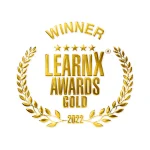1 August 2023 SIS Training Package Update – Extended Transition Period SIS20115 – Certificate II in Sport and Recreation
The Australian Skills Quality Authority (ASQA) has recently approved an extended transition period for the SIS20115 Certificate II in Sport and Recreation qualification.
This move comes as ASQA seeks to provide support and flexibility to learners, allowing them to complete their studies without undue disadvantage.
The Extended Transition Period: What You Need to Know
ASQA, after thorough consultation with the Victorian Registration and Qualifications Authority (VRQA) and Training Accreditation Council of Western Australia (TAC WA), has decided to grant an extended transition period for the SIS20115 qualification.
ASQA has extended the original transition end date of 11 December 2023. They have set the new certification issuance deadline for this qualification on 31 December 2024.
During this period, registered training organisations (RTOs) can continue offering the SIS20115 Certificate II in Sport and Recreation to new students, with the condition that all students must complete their studies or be transferred to the updated replacement qualification by the transition end date.
The SIS20115 Certificate II in Sport and Recreation
The SIS20115 Certificate II in Sport and Recreation is a popular qualification for individuals aspiring to enter the sports and recreation industry. The course equips students with the foundational skills and knowledge to pursue various roles in sports coaching, fitness instruction, and outdoor recreation activities.
However, as with any qualification, there comes a time for updates and improvements to align with industry demands.
Understanding the Extended Transition Periods
ASQA, under certain circumstances, has the power to grant transition periods beyond those stipulated in the Standards for Registered Training Organisations 2015.
These extensions address specific scenarios where learners might face genuine disadvantages if the qualifications were to be rapidly replaced. The process for approving extended transition periods involves a rigorous assessment of the impacts on the learners and the overall effectiveness of the training program.
The SIS20115 Certificate II in Sport and Recreation
The SIS20115 Certificate II in Sport and Recreation is a popular qualification for individuals aspiring to enter the sports and recreation industry. The course equips students with the foundational skills and knowledge to pursue various roles in sports coaching, fitness instruction, and outdoor recreation activities.
However, as with any qualification, there comes a time for updates and improvements to align with industry demands.
SIS Training Package Transitions: 7 Steps to Maintain Compliance
To ensure compliance during training package updates and revisions, follow these concise steps:
1. Stay updated:
Keep track of training package changes, transition periods, and deadlines to align courses and assessments with new standards.
2. Review learning resources:
Ensure courses and assessments are current by reviewing them in light of training package revisions.
3. Upskill trainers:
Invest in professional development to equip trainers with updated knowledge and enhance credibility.
4. Attend training events:
Participate in conferences, seminars, and workshops to improve staff knowledge and best practices.
5. Use compliant resources:
Choose training materials that align with the RTO’s setup, capacity, and student needs.
6. Ensure contextualisation:
Have experienced trainers contextualise materials or opt for updated resources if necessary.
7. Meet transition deadlines:
Act promptly to avoid negative impacts on marketing and enrolment; update course materials accordingly.
Conclusion
The decision by ASQA to grant an extended transition period for the SIS20115 Certificate II in Sport and Recreation is a win-win situation for all stakeholders involved.
Learners can proceed with their education without unnecessary stress, while training providers can continue offering valuable services without abrupt changes.
The sports and recreation industry can benefit from a continuous supply of skilled individuals until the updated qualification is fully rolled out.
Stay tuned with the latest VET news and updates!





